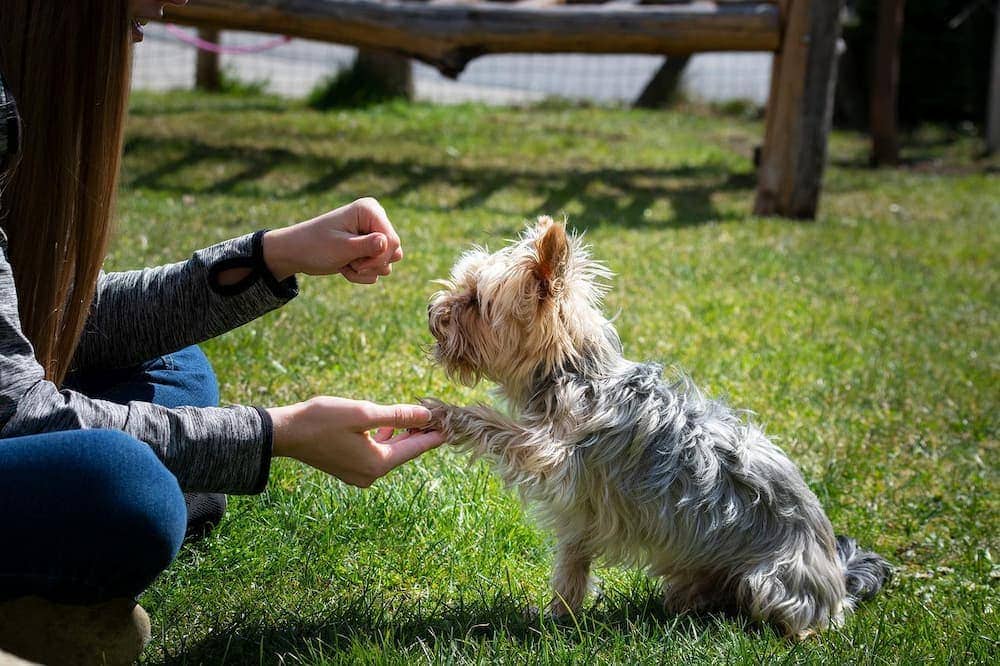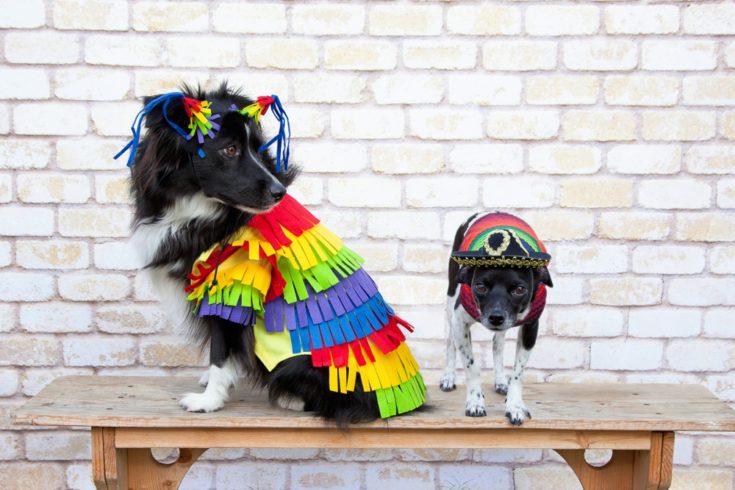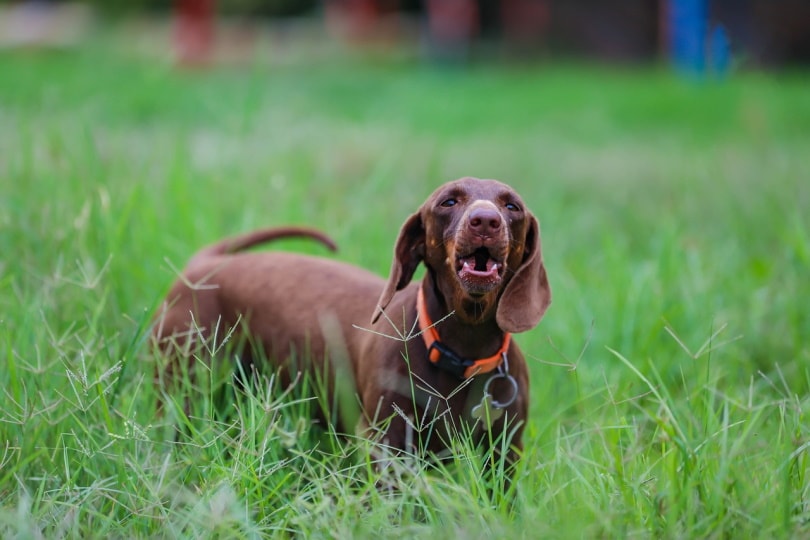Does Parvovirus Affect Older Dogs? Vet Approved Facts & FAQ
Updated on

Click to Skip Ahead
Canine Parvovirus 2 (CPV-2), also known as canine parvovirus and parvo, is a highly contagious virus in the canine community. While young puppies under 4 months old and unvaccinated dogs are most at risk of contracting this deadly virus, parvovirus can affect all canines of all ages, including older dogs, especially if they are not vaccinated.
Parvovirus is, thankfully, a (mostly) preventable disease due to vaccination, but it is still one of the most serious and vicious illnesses a dog can have. Primarily affecting the gastrointestinal tract, it often proves fatal, especially without treatment. It is a virus that remains stubbornly in our environments and is particularly difficult to control and eradicate, as it is rapidly and easily passed between canines.
The virus can live on many different surfaces and remains in the environment for long periods of time while being resistant to a lot of cleaning products, humidity, drying, heat, and cold.
What Is Parvovirus?
CPV-2 is a highly contagious virus that emerged in dogs in Europe in 1976, and by 1978 had spread worldwide, causing a variety of serious symptoms including myocarditis (inflammation of the heart muscle) and severe inflammation of the gastrointestinal tract1. The virus, once contracted, multiplies in the lymph nodes of the throat and tonsils and targets rapidly dividing cells in the lymphoid tissue, bone marrow, gastrointestinal tract, and the myocardium (heart muscle) in the very young.
It unfortunately makes your dog extremely sick and places them at risk of dying if they are not promptly treated. Even then, recovery is still not guaranteed.
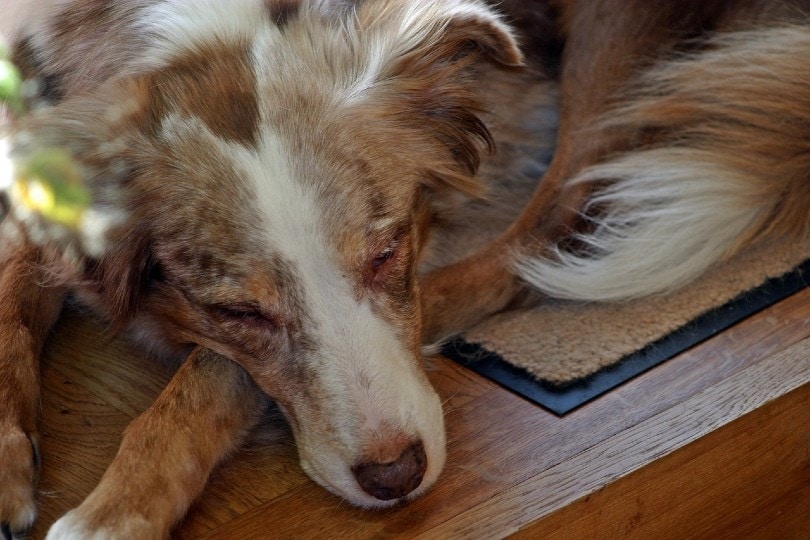
Can Older Dogs Get Parvovirus?
Yes, they can. Dogs of any age can catch parvo, although it is more common in puppies and adults who are not vaccinated. The severity of this illness is why the parvovirus vaccine is considered one of the essential core vaccines to give to your dog, whatever their age.
Signs of Parvovirus
Signs of illness from parvovirus usually transpire between 3 and 7 days after contracting the viral infection. Lethargy is the most common initial sign, with the other signs listed below developing and following very quickly.
It is noted that vomiting and diarrhea can be severe and damaging, and the dehydration and shock this subsequently causes, along with intestinal toxins, are often the main cause of death should the illness reach this stage. The other signs of parvo include:
- Lethargy
- Loss of appetite
- Abdominal pain
- Bloating
- Vomiting
- Diarrhea, often containing blood, with a distinct, pungent smell
- High temperature or low temperature
- Dehydration
- Increased heart rate
- Difficulty breathing
If you notice any of these signs and/or suspect parvo at all, take them immediately to your veterinarian for help and to give your dog the best chance of survival. Even if your dog is vaccinated, the same advice applies. Ensure you mention to your vet that you are worried about parvovirus so that your dog is isolated from other dogs at the practice.
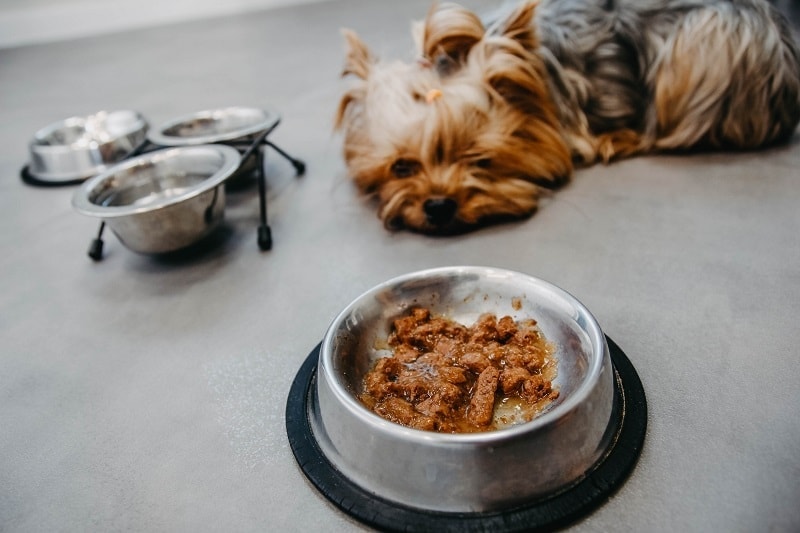
How Is Parvovirus Transmitted?
Parvovirus is incredibly efficient and spreads rapidly in numerous ways, both direct (meaning direct physical contact between dogs) and indirect (meaning via the environment, inanimate objects and people that have been in contact with the infected dog.
Parvovirus is spread by contaminated feces. When another dog comes into contact with the infected feces either directly or via the surrounding dirt and environment in which the infected feces lies or did lay, the virus can be passed on. This virus is a hardy one and can exist in the environment for up to 7 months in a contaminated area, as well as being able to survive on inanimate objects like bowls, work surfaces, grooming tools, and leashes.
It is also commonly spread by a dog carrying the virus on its fur or on its paws, contaminated cages, bedding, and human shoes. It is not passed to other dogs by the air, as it is not an airborne virus, but it can still be shed in the feces for up to 8 weeks after recovery from the illness.
How Can I Prevent Parvovirus in My Dog?
Although some immunity is passed to puppies from their mothers via their milk, it is not enough to maintain protection against parvovirus long term. Vaccination is therefore required against the disease and is the best form of defense and protection against this dreadful illness.
Initially, puppies are given two rounds of vaccinations against parvo, usually starting at 8 weeks. These are given along with other core vaccines. Unvaccinated dogs over 12 weeks may only require one initial round of the parvovirus vaccination. All dogs will then require a booster of all core vaccines one year later and then either yearly or every 3 years, depending on the type of vaccine used and the country you reside in.
Vaccines are not a guarantee against the disease, but they do drastically reduce the chances of your dog contracting the virus, and they are unlikely to become infected with the virus should they come across it.
You can help prevent your dog from catching parvo by staying away from known infected dogs and infected areas and trying not to socialize with dogs you know are not vaccinated or in areas with known low vaccination rates.
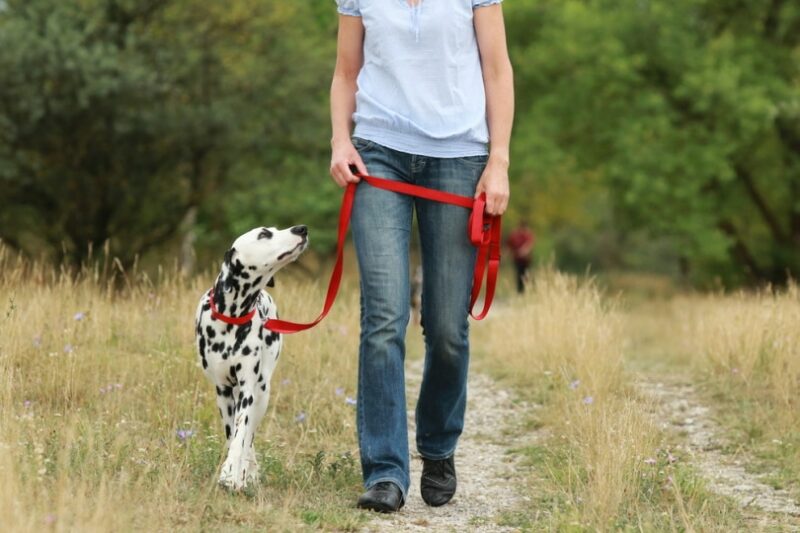
Conclusion
Parvovirus is a vicious and highly contagious virus that causes very unpleasant signs, illness, and death if not treated. Fortunately, these days, reliable vaccination is available to help prevent it in the first place. Should your dog be unlucky enough to contract the virus, prompt, immediate and aggressive veterinary treatment is absolutely essential to give it a chance of recovery.
Featured Image Credit: Yobab, Shutterstock



